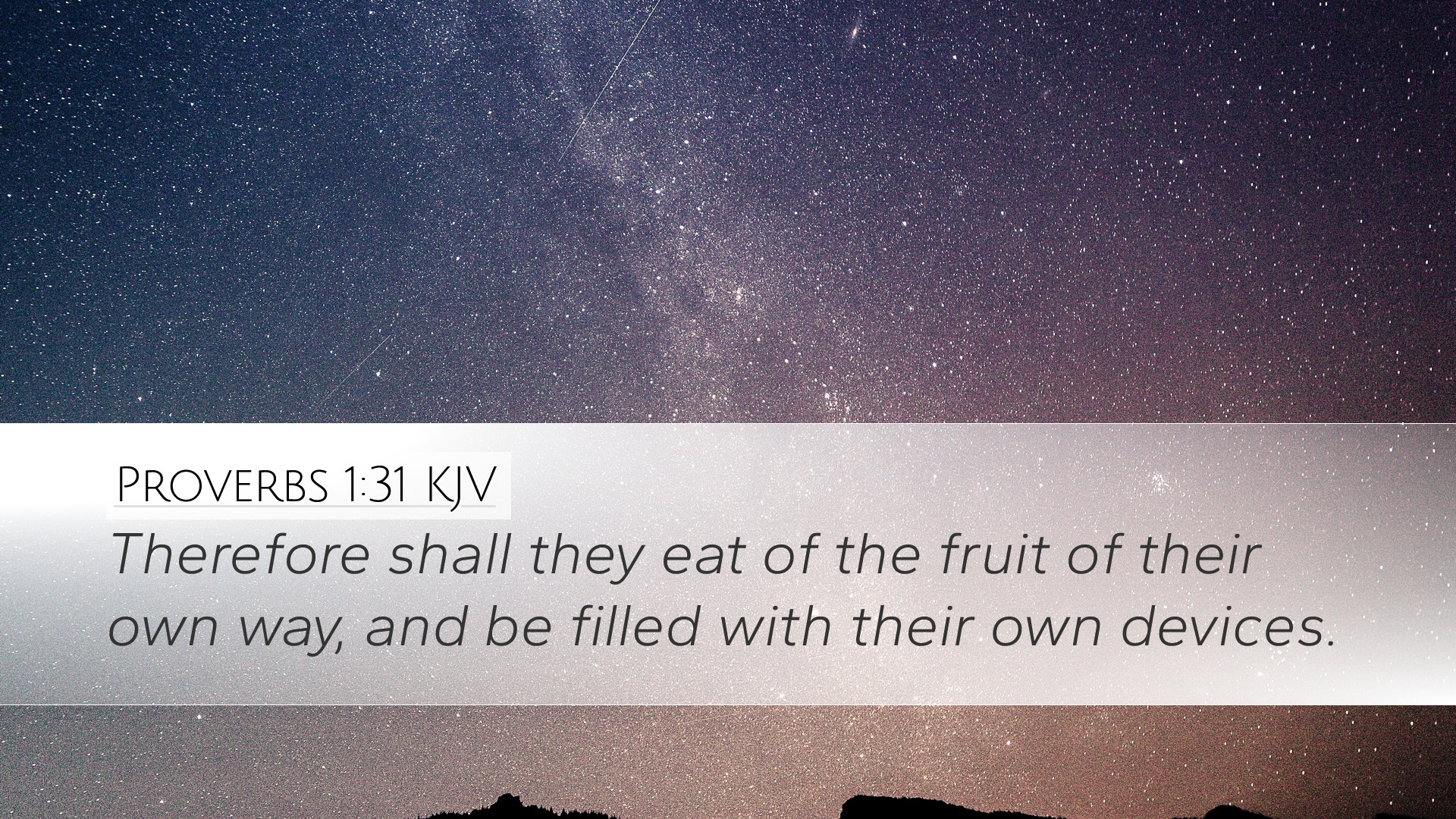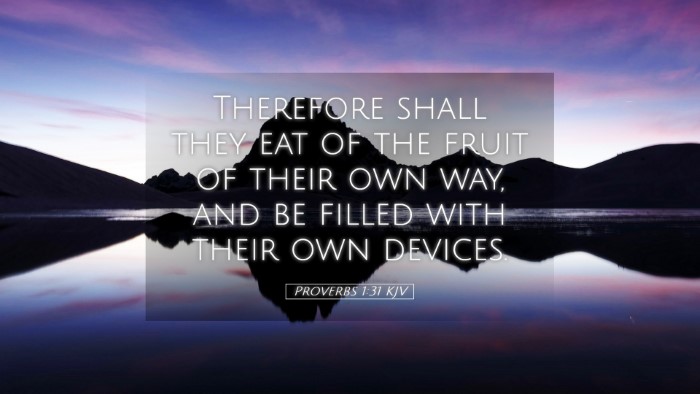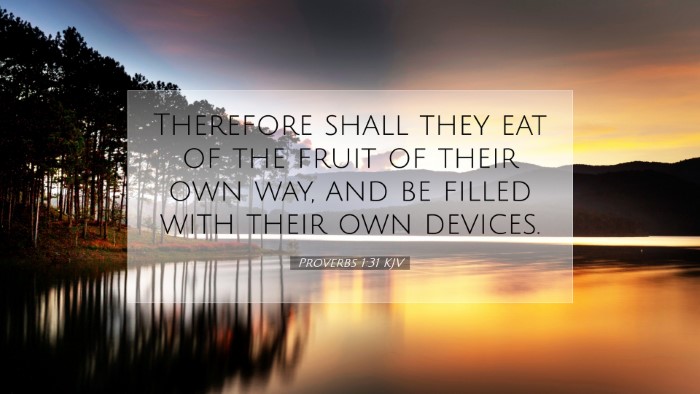Commentary on Proverbs 1:31
Proverbs 1:31 states, "Therefore they shall eat the fruit of their own way, and be filled with their own devices." This verse serves as a critical reflection on the consequences of one's choices and the inevitable outcome of pursuing foolishness over wisdom. In this commentary, we will explore the profound insights from notable public domain commentators such as Matthew Henry, Albert Barnes, and Adam Clarke, providing a comprehensive understanding suitable for pastors, students, theologians, and Bible scholars.
Understanding the Context
The Book of Proverbs is rich in proverbial sayings that offer wisdom, guidance, and moral teaching. This chapter serves as an introduction to the whole of the book, laying down the precepts and wisdom that are essential for understanding the successful navigation of life. The verses surrounding 1:31 underscore the difference between wisdom and folly, setting the stage for the analysis of consequences found in our key verse.
Exegesis of Proverbs 1:31
At its core, Proverbs 1:31 encapsulates the idea that one will experience the outcomes of their own actions. Matthew Henry expounds that the "fruit" symbolizes the results of one's life choices. The decisions made in pursuit of pleasure, momentary satisfaction, or wickedness ultimately lead to a harvest that one must partake in—whether good or evil.
Albert Barnes elaborates on the term "fruit," indicating that it indicates the rewards or penalties one encounters due to their lifestyle. The phrase "be filled with their own devices" signifies that one will reap what they have sown, both in the physical and spiritual arenas of life. This component serves as a grim warning against reckless or sinful living, stressing that one's devices can lead to their own undoing.
Theological Implications
Theologically, this verse serves as a reinforcement of the principle of divine justice. Adam Clarke notes that God has established a moral order where consequences follow actions. Therefore, when individuals choose to disregard wisdom, they set themselves on a path that leads to inevitable sorrow and regret. This concept is consistent with the broader biblical theme that portrays God’s justice and the natural outcome of sin.
Practical Applications
For pastors and theologians, this verse provides ample material for preaching on the importance of wise living. The insights from the commentaries accentuate the urgency to guide congregants toward making decisions rooted in the wisdom of God rather than self-serving desires.
- Encouragement of Wise Counsel: As noted by Matthew Henry, true wisdom guides individuals away from the consequences of folly. Pastors are called to provide this counsel and encouragement.
- Accountability in Choices: Albert Barnes emphasizes the need for accountability in one's decisions. The implication is that individuals should seek godly wisdom in their pursuits.
- Recognition of Consequences: The reality that one must "eat the fruit" of their own actions—both good and bad—should encourage believers to weigh their choices carefully.
Personal Reflection
Engaging with this verse invites a personal reflection on our individual choices and their ramifications. It challenges us to assess whether we are cultivating the "fruit of righteousness" or succumbing to the temptations of our own devising. This self-examination is vital in groaning towards maturity in faith and character.
Conclusion
In summary, Proverbs 1:31 stands as a stark reminder of the efficacy of wisdom versus folly. The line between success in alignment with divine principles and ruin through personal folly is razor-thin, making the counsel of wise leaders essential. By interacting with the insights of Matthew Henry, Albert Barnes, and Adam Clarke, we gain profound understanding and guidance that can shape our lives and ministries significantly.
The richness of this verse not only prepares us for personal accountability but also positions us to assist others in navigating the complexities of life with godly wisdom. May we continue to seek and share such wisdom, ensuring that our actions lead to a fruitful and fulfilling life in Christ.


